Digital Material Appearence¶
Introduction¶
- Light / material interactions
- Absorption
- Reflection: Color, Glossiness
- Transmission
- Transparency
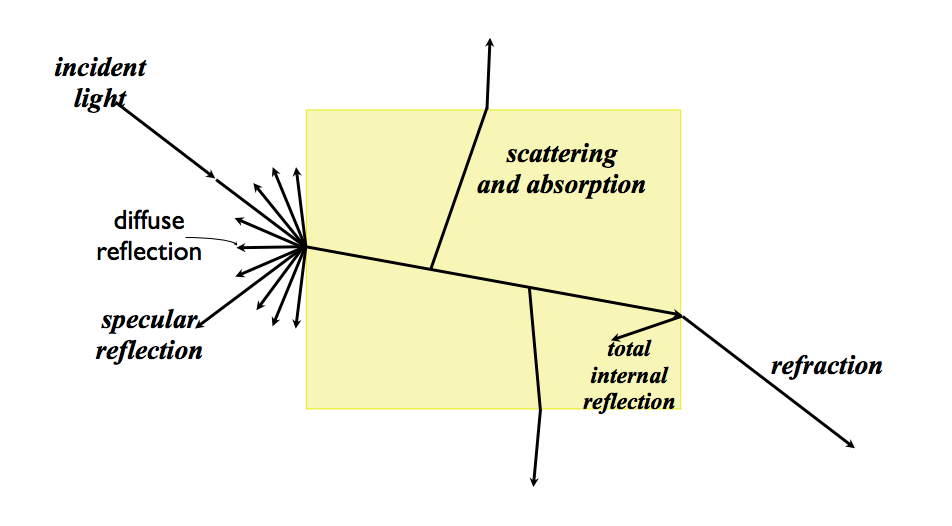
- 和location, view, lighting有关
Reflection Models¶
介质密度的变化
- BRDF(Bidirectional Reflectance Distribution Function) \(f(i,o)\),一个四维函数
- 我们知道所有经过同一点的模长为1的向量的集合是一个三维球,在球上表示一个点我们只需要两个参数,因此入射和出射各两个参数,一共四维
- Fixing i, a 2D function of outgoing directions
- describes how incident light is reflected along different directions
Specular Reflection¶
-
Perfect Mirror Reflection.
-
p: point of interest
-
n: normal
-
i: lighting vector, couting-intuitive dir 方向和实际入射方向相反
-
o: view vector
-
i,o,n are unit vectors
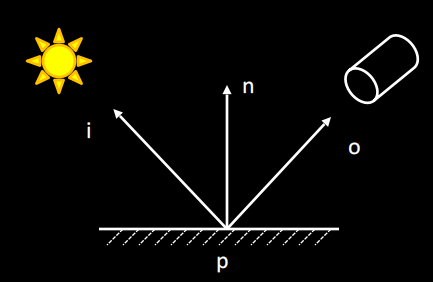
-
计算反射方向r
-
\(– r = -(i - <i,n>n) + <i,n>n = 2<i,n>n - i\)
-
test if \(<o,r>=1\)
-
利用half vector \(h=\dfrac{i+o}{\|i+o\|}\) 判断h和n是否重合即可
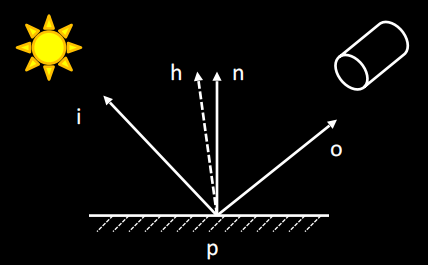
-
-
-
Fresnel Reflectance Term: Reflection depends on incident angle
-
绝缘体
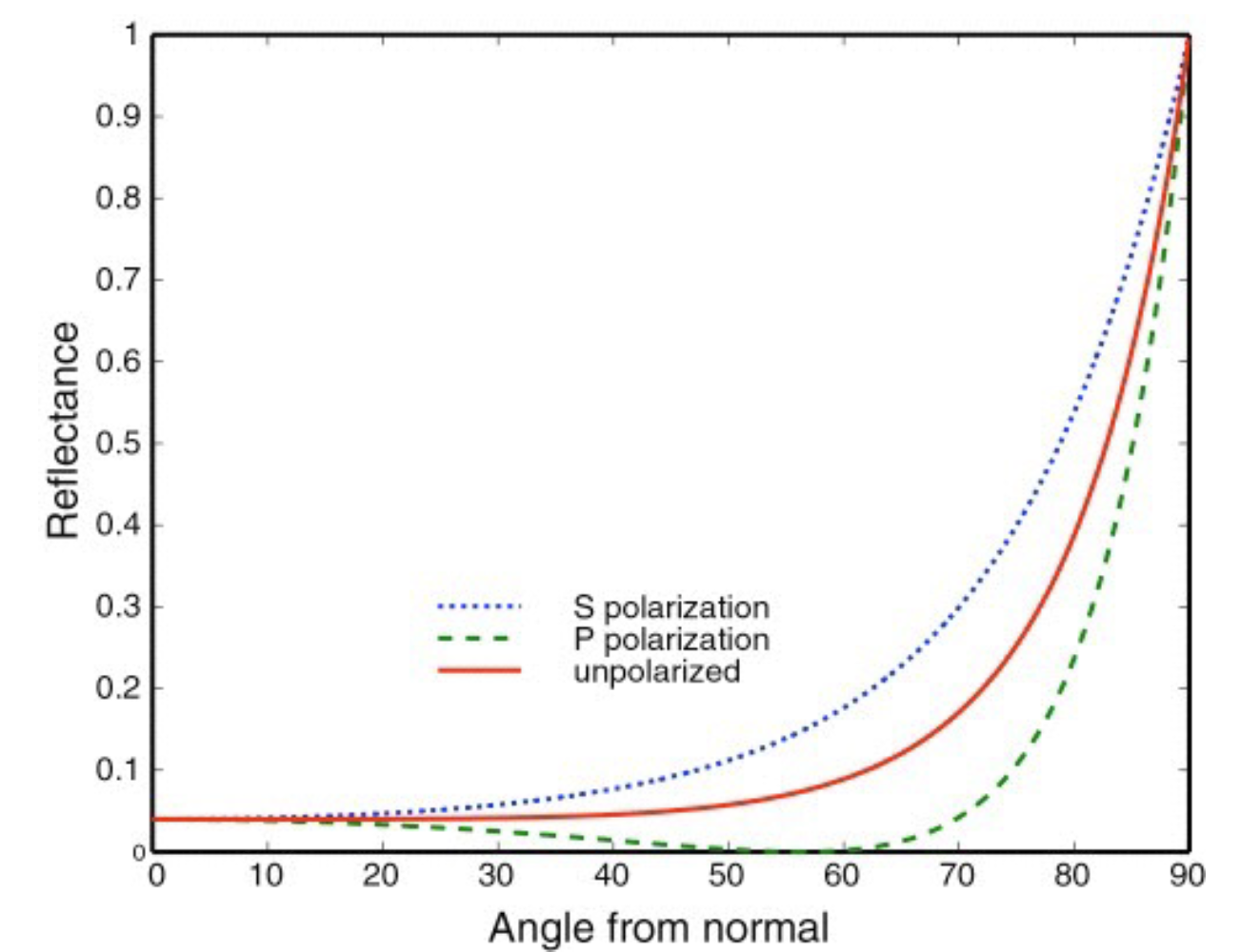
-
导体
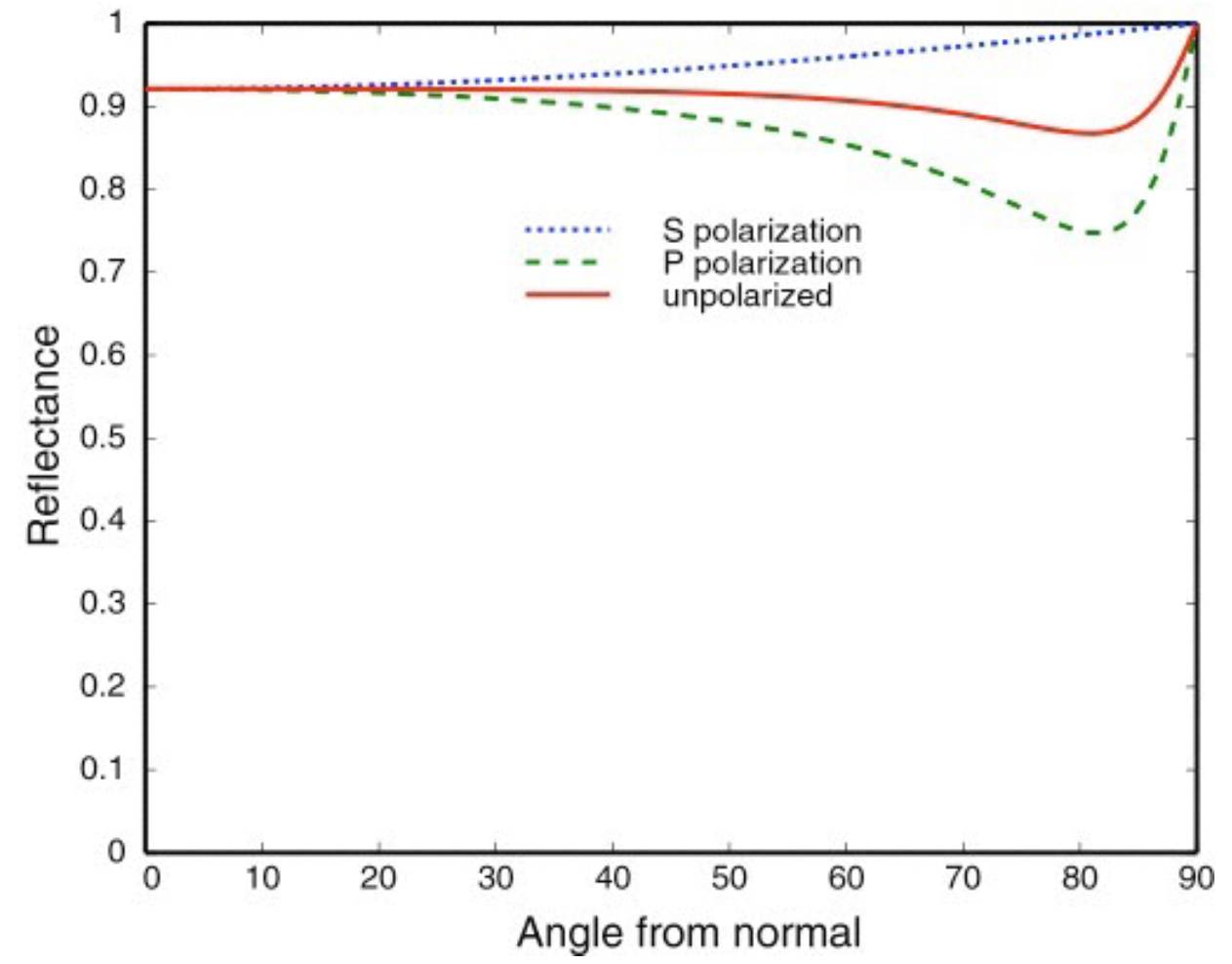
-
公式如下,但显然过于复杂了 $$ R_{s}=\left|\frac{n_{1}cos\theta_{i}-n_{2}cos\theta_{i}}{n_{1}cos\theta_{i}+n_{2}cos\theta_{i}}\right|^{2}=\left|\frac{n_{1}cos\theta_{i}-n_{2}\sqrt{1-\left(\frac{n_{1}}{n_{2}}sin\theta_{i}\right)^{2}}}{n_{1}cos\theta_{i}+n_{2}\sqrt{1-\left(\frac{n_{1}}{n_{2}}sin\theta_{i}\right)^{2}}}\right|^{2} $$
\[ R_{p}=\left|\frac{n_{1}cos\theta_{i}-n_{2}cos\theta_{i}}{n_{1}cos\theta_{i}+n_{2}cos\theta_{i}}\right|^{2}=\left|\frac{n_{1}\sqrt{1-\left(\frac{n_{1}}{n_{2}}sin\theta_{i}\right)^{2}-n_{2}cos\theta_{i}}}{n_{1}\sqrt{1-\left(\frac{n_{1}}{n_{2}}sin\theta_{i}\right)^{2}+n_{2}cos\theta_{i}}}\right|^{2} \]
-
-
采用Schilick’s Approximation,其中\(\theta\)是i和n的夹角
-
Microfacet-Based Models: Many real-world materials actually consist of or can be modeled as microfacets
- Microfacets = Tiny, planar and mirror-like surface patches
- Key: the distribution of microfacets’ normals 不同的法向量会影响反射的结果
$$ f(i,o)=\frac{F(i,h)G(i,o,h)D(h)}{4(n,i)(n,o)} $$
F:反射率 D:微面法向量的分布
D(h) describes the percentage of microfacets whose n = h (i.e. the normal distribution of microfacets)
- Microfacets that could potentially reflect under the current i & o 必要条件而非充分
G表示Shadowing & Masking 光打不到或者反射光被物体遮挡
- Microfacets in shadows do not reflect
- Microfacets occluded cannot be seen
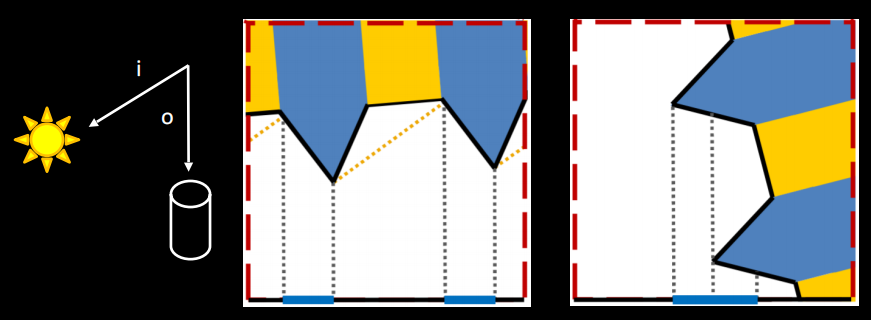
Different microfacet BRDFs mainly differ with the choice of D
-
An Example: Cook-Torrance Model。D为Beckman distribution。m控制highlight的形状 $$ D=\frac{e^{\frac{-(an^2(a)}{m^2}}}{\pi m^2cos^4(\alpha)}, \alpha=\arccos(\mathrm{n}\bullet h)\G=\min(1,\frac{2(h\bullet n)(o\bullet n)}{o\bullet h},\frac{2(h\bullet n)(i\bullet n)}{o\bullet h}) $$
-
以上我们都是isotropic的,即各向同性的,所以高光会是圆形的。如果需要条形的,这时候就要anisotropic(各向异性) BRDF
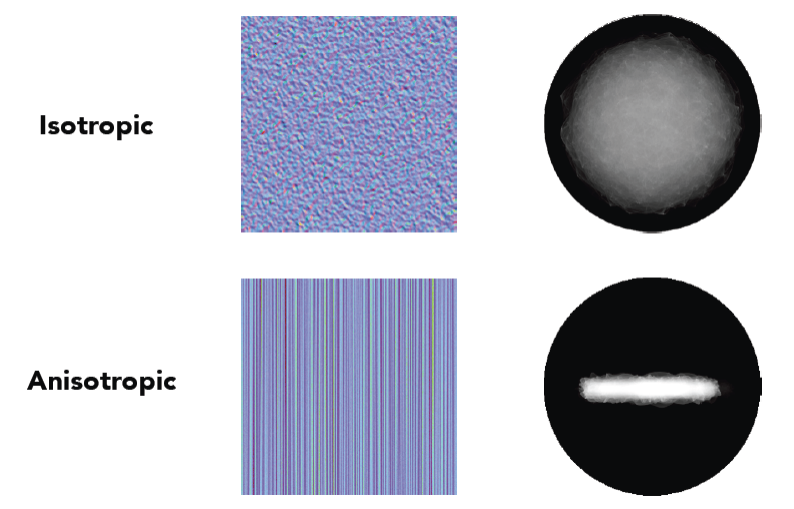
-
Diffuse Reflection
-
Lambertian model
-
Light is equally reflected along all outgoing directions
-
Can be considered as highly spread-out random microfacets
-
f(i,o) = constant
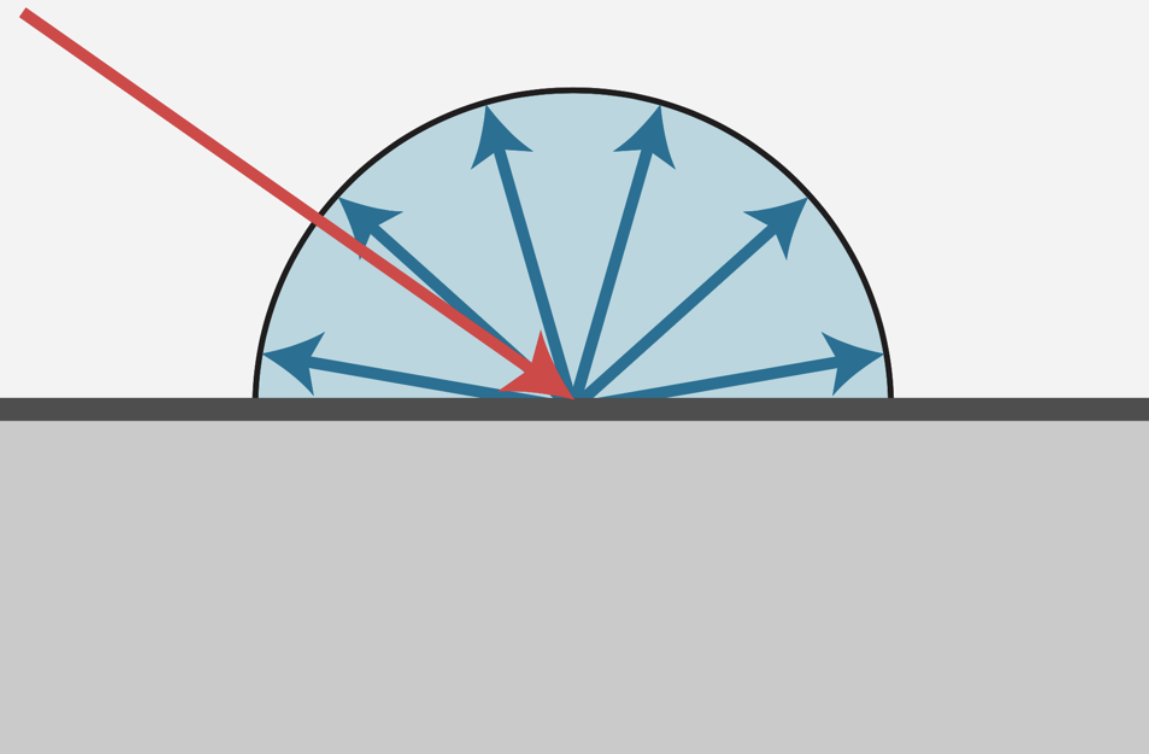
-
-
Putting Things Altogether
-
The reflected light of a unit amount of directional incident light can computed as
$$ f(i,o)(i,n)=\left\frac{\rho_d}\pi+\rho_s\bullet f_{spec}(i,o)\right $$ -
\(\rho_d,\rho_s\) are diffuse/specular coefficients 三个分量,RGB,各算一遍
- 非导体\(\rho_s\)一般是白色,导体的一般是其本身颜色
-
Could be extended to represent reflectance at different wavelengths
-
-
高质量的数据:[Matusik et al. 2004] 每一个BRDF大概都要占64MB,高质量的
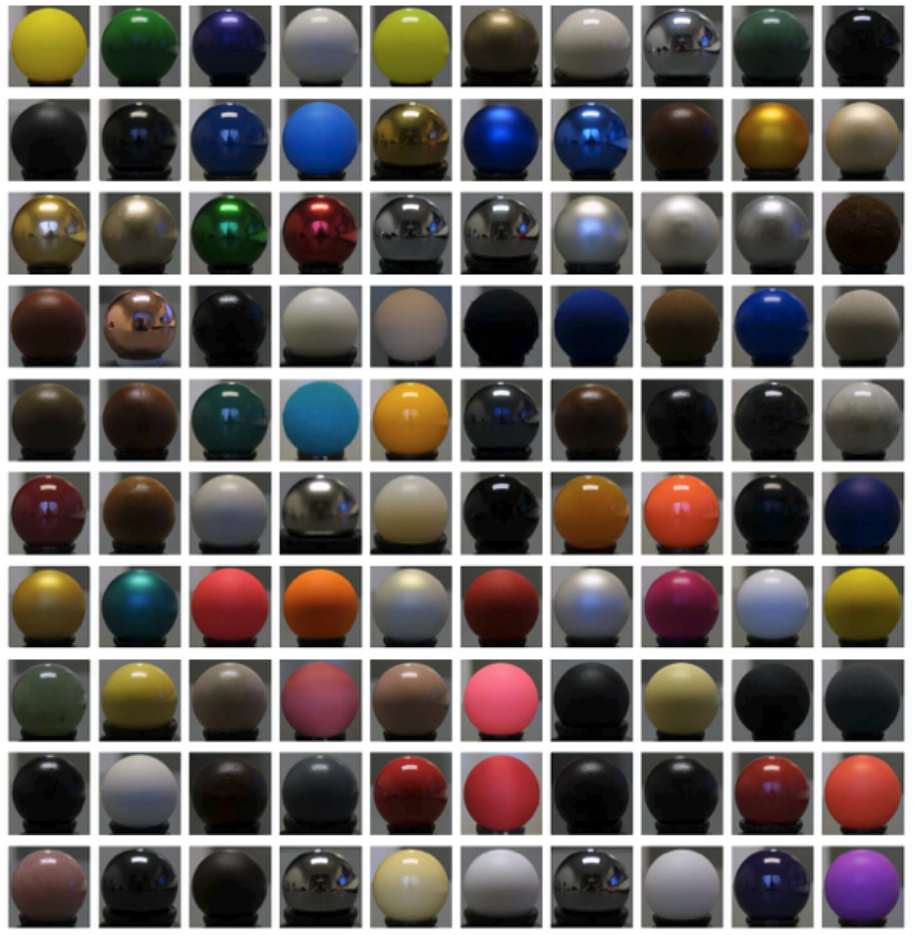
- useful tool
Reflectance Capture¶
采集BRDF
-
motivation: Accurate modeling of real-world materials
-
direct sampling: General Idea
- For each o, For each i, Measure f(i,o)
- The most general approach / highest quality
- Extremely time consuming: Curse of dimensionality
-
Illumination Multiplexing
- Light Stage
- Use hundreds of light sources simultaneously
- Only one or a couple of cameras
- Project certain patterns and recover the reflectance with a lookup table
- Far more efficient
- 在电影行业广泛应用
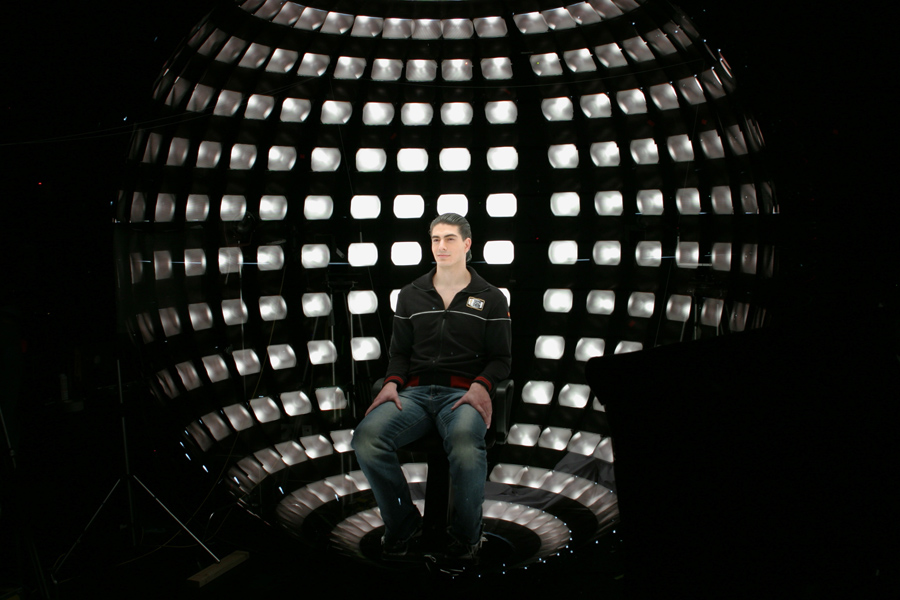
- Light Stage